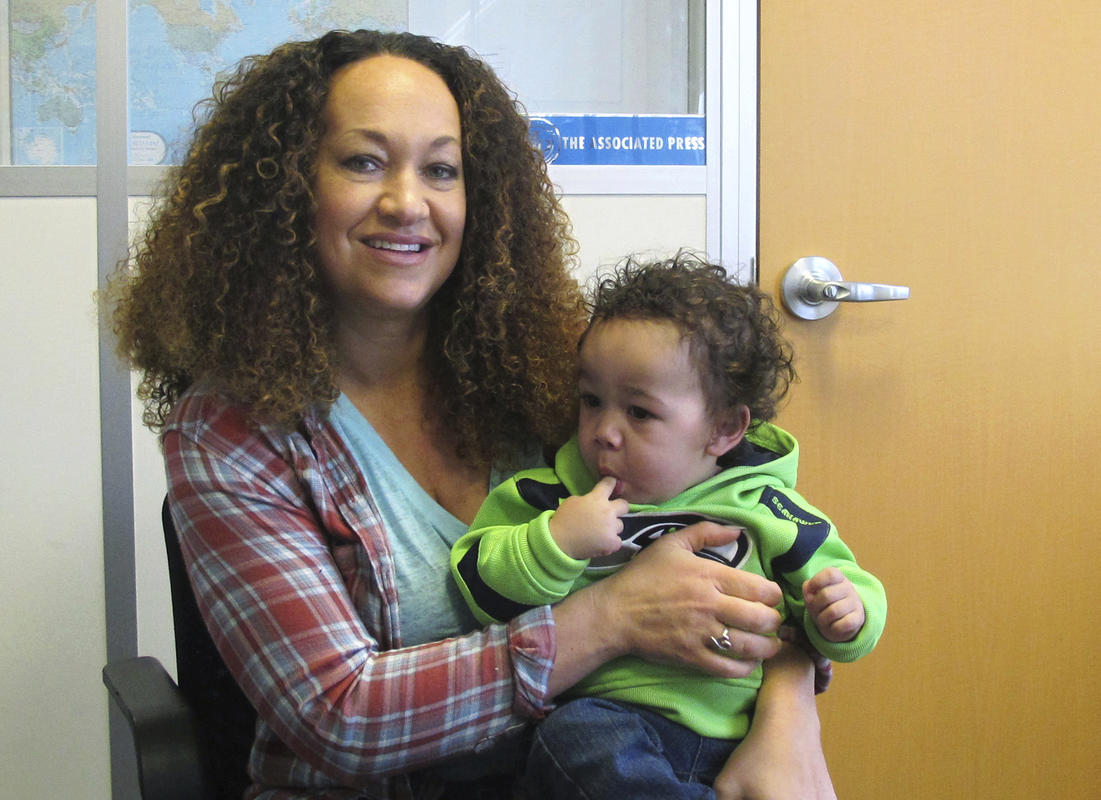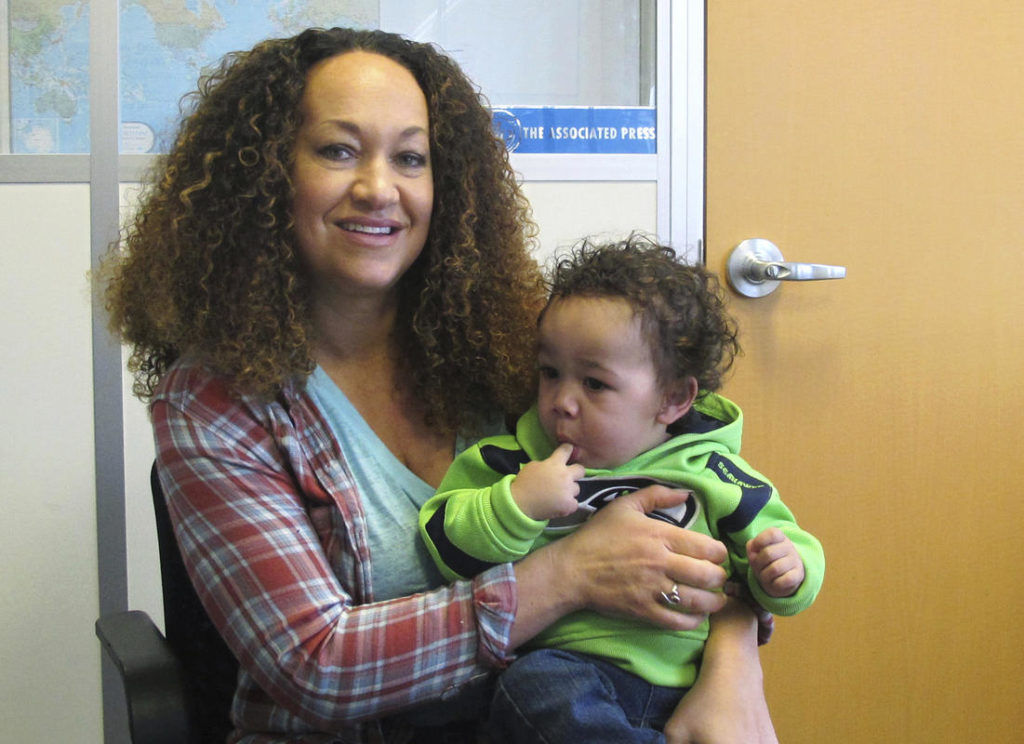
By Nicholas K. Geranios
Associated Press

SPOKANE, Wash. (AP) – A white civil rights leader, fired because she led others to believe she was black, said she struggles to make a living these days because she was portrayed as a fraud.
Rachel Dolezal said she has been unable to find steady work in the nearly two years since her background became public in media reports, and she is uncertain about her future.
“I was presented as a con and a fraud and a liar,” Dolezal told The Associated Press this week. “I think some of the treatment was pretty cruel.”
Now 40, she still identifies as black, despite being “Caucasian biologically,” she said. And she still has the darkened complexion and frizzy hair that allowed her for years to pass as a light-skinned black woman.
“People didn’t seem able to consider that maybe both were true,” she said. “OK, I was born to white parents, but maybe I had an authentic black identity.”
Dolezal had blond hair and freckles while growing up near Troy, Montana, with religious parents. She said she began to change her perspective as a teenager, after her parents adopted four black children. Dolezal decided to become publicly black years later, after a divorce.
The ruse worked for years until 2015, when her parents, with whom she has long feuded, told local reporters their daughter was born white but was presenting herself as a black activist in the Spokane region, an area with few minorities.
The story became an international sensation, and Dolezal lost the various jobs by which she pieced together a modest living.
Attacked by both blacks and whites, she was fired as head of the Spokane chapter of the NAACP and was kicked off a police ombudsman commission. She also lost her job teaching African studies at Eastern Washington University in nearby Cheney.
Despite failing to find a job, Dolezal said, she must stay in the area because of a custody agreement involving one of her sons.
She has sold some of her artwork and braids hair to earn money. But she said local colleges have refused to hire her, as have nonprofits, government agencies and even grocery stores.
She was worried she might become homeless in March, but friends bought some of her artwork, which provided enough money to pay the rent for a few months.
Dolezal has written a book about her ordeal titled “In Full Color.” It’s scheduled to be published next week.
Last year, Dolezal legally changed her name to Nkechi Amare Diallo, a West African moniker that means “gift from the gods.” She made the change in part to give herself a better chance of landing work from employers who might not be interested in hiring Rachel Dolezal, a name she still intends to use as her public persona.
“Maybe if I applied with a new name, people would see me for the qualifications and expertise on my resume, and not toss my application in the trash based on my name,” she said.
The local chapter of the NAACP declined to comment on Dolezal.
“We moved on long ago,” the organization said in an email.
But James Wilburn, a black community leader and former head of the NAACP in Spokane, said Dolezal’s presentation of herself as black was troubling.
“Just come out and tell the truth. She struggles with that,” Wilburn said.
Dolezal is the biological mother of two sons, ages 15 and 1, and also gained legal custody of a stepbrother, who is now 21 and a college student.
One of the reasons she wrote a book was to “settle the score.”
“People might as well know the whole truth of my life story,” she said. “My life is not a sound bite.”
Race, she said, is a “social construct” used to pigeonhole people.
“I unapologetically stand on the black side,” she said. “Blackness better defines who I am philosophically and socially than whiteness does.”
It is hard for her to look toward the future, she said, when she is struggling to survive the present.
“I want to provide for my kids,” she said. “I want to get back to activism. I’m no less committed to that work.”




